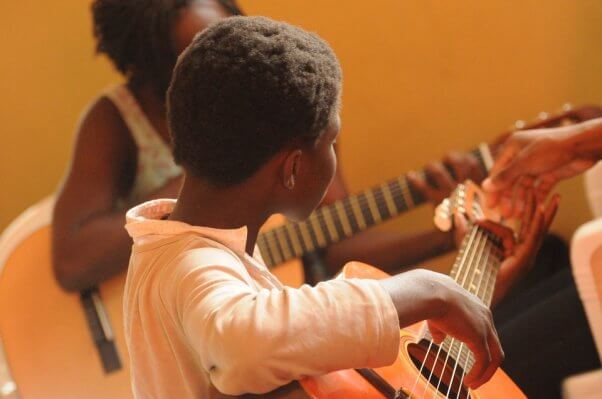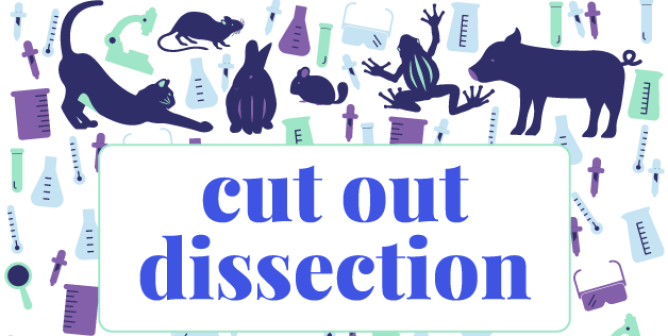Music Teachers: Cut the Cruelty With Vegan Instruments
As educators, we’re responsible for providing students with a comprehensive selection of elective courses—not only to supplement their core subject studies but also to encourage creative expression and help them develop into well-rounded, culturally competent individuals. What a disservice it would be then to turn caring students off from the arts by offering them musical instruments made from the parts of dead animals!
The use of animal-derived materials—such as calfskin, horsehair, and even cow innards—in these items is simply unnecessary. With so many affordable and high-quality animal-free options available, there’s no reason not to make the switch to a cruelty-free classroom. Almost any music store should be able to accommodate your request for animal-friendly equipment. Before purchasing an instrument, take time to verify that it’s free of animal-derived materials by using the following information as a guide.
 Drums and Bagpipes
Drums and Bagpipes
In the past, the skins of sheep, elks, cows, and other animals—who value their lives just as you and I do—have been used to make drumheads and bagpipes. Today, it’s easier than ever to make these instruments using synthetic materials. Companies such as Remo Inc., Evans Drumheads, and T. Sonoda offer products that spare animals’ lives but not sound quality.
Although some companies suggest using lanolin, tallow, or other oils made from animals to clean drumheads, vegetable-based options such as vegetable tallow, Japan tallow, paraffin wax, and ceresin can be used instead.

 Strings and Bows
Strings and Bows
Gut strings are made from just that—guts, or serosa, the outermost layer of a cow’s intestines. On average, it takes the bodies of three animals to make just one string. Cows—or any other animals—shouldn’t die for our music, especially when gut strings can easily be replaced with ones made of nylon or steel, which can be found in most music stores.
The bows used to play string instruments are sometimes made with horsehair. Animals need their hair more than we do—not to mention that horses used for their hair are often slaughtered and made into glue. Choose bows made from carbon fiber or fiberglass, such as those offered by Incredibow and Cardiff Violins. Many players—including Dr. Ioana Galu, assistant professor of violin and chamber music at the University of South Dakota—find that synthetic strings are superior to animal-derived ones in sound, texture, and longevity.
Speaking of glue, instruments made of wood are often held together by glue made from animal skins. Instruments made from carbon fiber, however, can be held together by epoxy. You can also choose an electric model with a solid body—no adhesive necessary.

 Piano Keys
Piano Keys
Although piano keys are rarely made of ivory these days, they can be made from the hooves, horns, and bones of various animals. Animals’ body parts are their own, so stick with the many piano manufacturers—including Steinway and Baldwin—that make their keys out of white plastic.

Want to get more animal-friendly tips and resources for your classroom? We’ll send them right to your inbox for free. Join TeachKind’s mailing list!
By submitting this form, you’re acknowledging that you have read and agree to our privacy policy and agree to receive e-mails from us.





